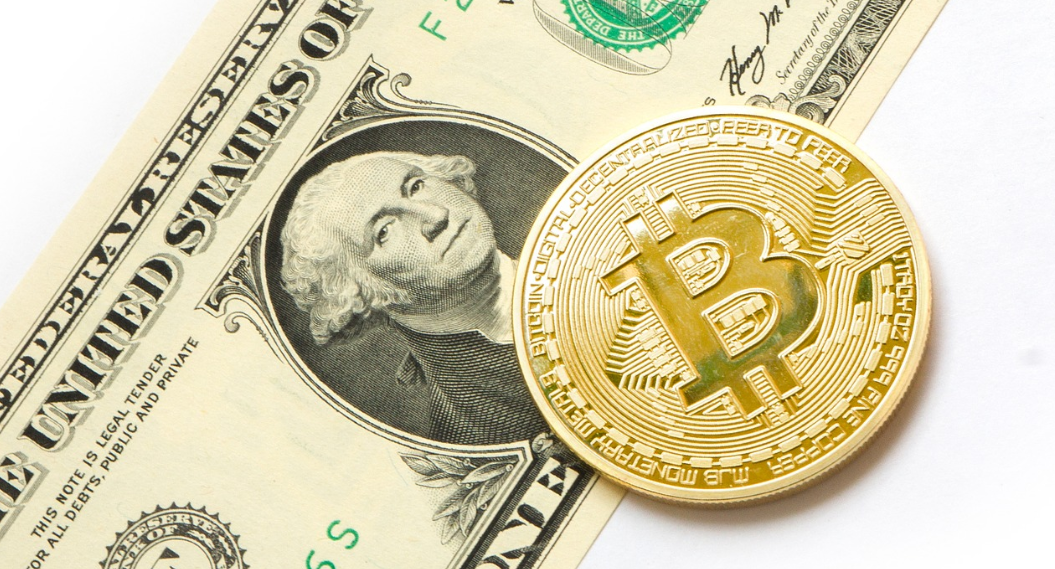Blockchain: Casting a new financial civilization
In China, due to financial regulation, funds are limited in terms of circulation. Whether it is personal remittance and remittance is limited by 5w US dollars, it is obviously not enough for the increasingly wealthy Chinese. According to the official explanation of financial regulation, this is exactly the case:
Financial regulation is an administrative mandatory control measure imposed by the state on certain important financial activities, financial operations or financial regulation tools. It mainly includes interest rate control, foreign exchange control or exchange rate control, and loan size control. Financial regulation is a non-marketing monetary policy measure adopted by a country to achieve specific macroeconomic control objectives in a specific economic development stage in a non-market economy or an imperfect market economy environment. The goal of financial regulation changes with changes in monetary policy and macroeconomic regulation and control objectives. Financial regulation implements strict, "one size fits all" direct control, which is an external compulsory constraint on financial institutions.
Why there is financial regulation, we have to trace back from the financial history.
Financial stage
Western securities trading was already in its infancy in the 16th century. The early securities market was completely free of market. There was basically no special securities legislation. The speculation and fraud everywhere in the market are now almost the same as the current currency circle. In the middle, there have been problems, and the government must legislate to regulate the market. In fact, the early financial influence was not too big for the economy. At that time, under the gold standard system, banks were not institutions that used currency issuance to control the economy, so the legal constraints were extremely limited.
- Is Bitfinex and Tether actually a victim? The culprit behind the scenes is it!
- Internet vs blockchain revolution: early challenges
- Three "printing machines" are open: this year, USDT has accumulated more than 1 billion yuan to renew the stable currency market.
Later, due to the formation of the central bank, the influence of monetary policy on the economy has been expanding. I have already elaborated on the development and functions of the specific central bank in the previous article, and I will not repeat them here.
Financial regulation
Later, from Germany and Japan, in the 17th century, the Central Bank was established, the Imperial Bank of Germany and the Japanese Bank of Japan gradually monopolized the issuance of currency during the development process, and the first stage of financial regulation was taken. The early stages.
Later events were well known. With the general collapse of the gold standard in the 1930s and the establishment of the Bretton Woods system after the Second World War, it had a direct impact on the financial legal systems of various countries.
The Great Depression of 1929-1933 was a watershed in the US financial industry from free development to full control.
In March 1933, Franklin Roosevelt became president of the United States. Taking the opportunity of implementing the "New Deal", a series of laws on government intervention in the economy have been promulgated, as if a financial firewall has been built.

The Banking Act of 1933 was a sign that the United States imposed full control over the banking industry. It requires the US banking industry and the securities industry to implement complete separate operations and separate management. Subsequently, the US government issued a series of detailed laws to implement full financial supervision of the banking industry and the securities industry and other related financial businesses. The market blind competition or complete free competition has ended, and all aspects of the market are in law. Under the tube bundle.
One of the characteristics of the Japanese financial system after the Second World War was the indirect finance, which was based on the regulation of banks.
Opening control, separate control, interest rate control and foreign capital flow control constitute the main content of Japanese financial supervision. As far as the degree of government regulation is concerned, Japan is the most comprehensive and rigorous. Its financial supervision clearly shows the characteristics of monopoly capitalism, and it protects the stability of the financial system by protecting the monopoly of the financial industry.
In order to ensure the stability of finance, the consequences have continued to emerge.
Flower of evil fruit
Financial monopoly has led to the proliferation of usury and financial chaos is basically the negative impact of financial regulation.
Because there are no effective restrictions on financing on the Internet, the financial chaos has been frequent in recent years, and the number of people involved has a great influence. It has already reached an exaggerated point. For example, the financing involves many individuals' P2p online lending platforms, and the 3M Ponzi scheme is indispensable for the ICO financing of the currency circle.
It is characterized by low transparency, lack of legal protection, and easy to induce social unrest. People who have experienced it must have a deep understanding. The chaos has led countless people to ruin their blood, and there are countless examples.
The root cause of all things is that hot money does not have any effective channels for investment, the bank deposit rate is low, the income of the balance treasure is declining, the house price is high, the stock market crashes, the hot money is constantly fleeing overseas, and the investment property of Bitcoin is obvious. Improvement, whether from the perspective of investment properties or as a foreign exchange channel, is a perfect fit.
Financial technology is a hot word in recent years, and the blockchain born out of Bitcoin is one of the best. In the short-term, there is a bubble. In the next five years, blockchain technology is undoubtedly the most promising in the industry, subverting the burden of the existing financial system and rebuilding the value system.
Can be analogous to the development of the ancient paper industry, or we can draw some clues.
Information carrier and value transfer
Only by increasing the speed of information carrier transmission can civilization spread, and improving the efficiency of value transfer can promote the reform of the financial industry.
An important stage of the development of civilization is due to the invention and popularization of paper. China is the first country to invent printing, and the practical value of the printing warlocks in China in the Tang Dynasty and even in the Sui Dynasty. The emergence of engraving and printing is the birth of the Chinese imperial examination system.
The demand for knowledge from the upper society and the intellectual class gave birth to printing. This is exactly the case, and Li Shimin’s rule of the Qing Dynasty and the Kaiyuan prosperity. The Chinese culture flourished in the Tang Dynasty unprecedentedly, so that there are people who call the Chinese people Tang Dynasty, and even the names of the local Chinese gathered in China are called Chinatown. The influence can be imagined.
If we take information theory to examine the role of printing, there are two main points:
First, it expands the broadband of information dissemination. The copying of a book and the printing of 100 books are obviously different. The second law of Shannon, broadband determines the speed of information dissemination. Just like mobile communication technology, 2G to 3G has no obvious It feels that from 3G to 4G, it is obvious that the popularity of mobile payment and smartphones has changed, and the potential of the upcoming 5G is even more important.
Second, after the advent of printing, it is easier to avoid errors in the process of communication, that is, the noise in information theory. Before 3G, due to technology limitations, work can only be reported by mail, and 4G appears directly. Negative effects of communication, timeliness and erroneousness.
In contrast to the lag of today's financial system, the opportunities for bitcoin and blockchain are very large.
Due to the bank's loanable funds and actual negative interest rates, bank funds have become a "short-term commodity" that is in short supply. Under the limited capital scale, banks will naturally protect large projects and large customers. The difficulty of lending to small and medium-sized enterprises has not been solved. Even the state has been calling on banks to lend them, but the effect is minimal.

With the initial establishment of the Chinese market system, the marketization of economic micro-subjects, and the rapid growth of financial transactions, the marketization of interest rates has not started, resulting in serious distortions in resource allocation. At present, China still maintains a loan-to-deposit spread of around 3%, which is rare in the world. Initially, maintaining a bank's high spreads can help the banking system accumulate profits and capital strength and offset the bad debts left over from history. However, maintaining long-term high spreads makes it easy for banks to “sit and earn money”, which is not conducive to the improvement of bank management efficiency, and also makes banks become “distributors” of public deposits rather than value creators.
I don’t see you, the first line of the universe, how ICBC dominates the most profitable companies.
Finance is the blood of the modern market economy. The marketization of the financial system is a prerequisite for the sound operation of the market economy. Only by relaxing financial regulation, reducing barriers to entry in the banking industry, breaking state-owned monopolies, and accelerating the pace of interest rate liberalization, it is at this time that blockchain technology has developed for ten years and the window has been opened.

Bitcoin and blockchain also improve the timeliness of global remittances in the process of value transfer. Even under the Bitcoin block, the 7s transmission speed of each block can not meet the massive demand in the financial system, and the value transmission speed is increased. It is precisely the problem that Bitcoin and blockchain technology needs to solve nowadays, and it is also an important threshold that must be taken to determine the popularity of blockchain technology in the future. I believe that this day will not be too far, and the wheel of history will continue to move forward. Relentlessly crushing the perception of past fixed thinking, redefining the financial industry is just around the corner.
(Author: Bitcoin Caesar)
We will continue to update Blocking; if you have any questions or suggestions, please contact us!
Was this article helpful?
93 out of 132 found this helpful
Related articles
- Samsung executives responded to the rumor of the currency: most likely the development of the electronics department, but ultimately depends on the use case
- Building a city of wisdom on the blockchain | 2050 Conference·New Life Forum
- The history of password punk is the history of growth after 90, is the spirit of password punk lost?
- Executives respond to rumors of currency: At Samsung, we all use blockchain
- Q1 Dapp Market Analysis Report: Insufficient gambling Dapp pull capability, persistent doubt
- Deng Jianpeng: Doubt and legal risks of Bitfinex and Tether
- Brave is forked, BAT is abandoned, this new browser is going to do things with Lightning Network






